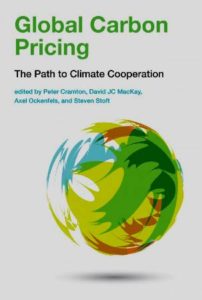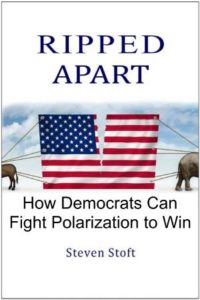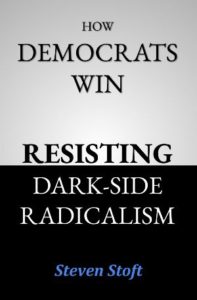About
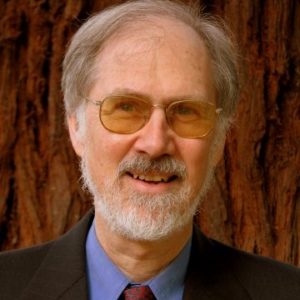
Steven Stoft is an economist with a background in physics, math, and astronomy. Between graduate astronomy and economics, he taught middle school and high school science, and hired and trained disadvantaged youth as “explainers” for San Francisco’s Exploratorium science museum.
In parallel with his technical side, Stoft has maintained a keen interest in politics since the sixth grade, which has guided his activism and is now setting his agenda.
Late in his economics career, he began researching climate change, which eventually led to Global Carbon Pricing (MIT press, 2017). He is still actively engaged in climate-cooperation research, which has included behavior experiments conducted at the University of Cologne. Recently however, his life-long, somewhat-activist interest in politics has resulted in a pair of books on the American left’s contributions to the new populism and to polarization.
Although his dissertation under George Akerlof at UC Berkeley challenged the neoclassical view that unemployment is optimal, after teaching at Boston University and UC Santa Cruz, his science background led him to energy-efficiency economic research at the Lawrence Berkeley National Laboratory.
Migrating to the UC Energy Institute, he studied the new markets for wholesale electric power, and then spent a year at the Federal Energy Regulatory Commission (FERC), after which he became a consultant to the newly formed power markets, including PJM (serving 65 million people), ISO New England (serving six states), the California ISO, and the Alberta Electric System Operator.
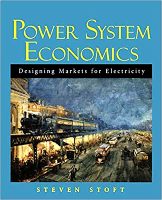 After leaving FERC, Steven wrote what became the most popular text in that field — Power System Economics (Wiley/IEEE, 2002) — which was translated into Chinese, Russian, and Farsi. This led to his role as the expert economic witness in California’s suit to recover some of the $40 billion it spent on double-priced power futures while trying to extricate itself from its 2000−’01 electricity-market crisis.
After leaving FERC, Steven wrote what became the most popular text in that field — Power System Economics (Wiley/IEEE, 2002) — which was translated into Chinese, Russian, and Farsi. This led to his role as the expert economic witness in California’s suit to recover some of the $40 billion it spent on double-priced power futures while trying to extricate itself from its 2000−’01 electricity-market crisis.
In 2011, Steven accepted a consultancy with the UK’s Department of Energy and Climate Change, partly in the hope of collaborating with the renowned physicist David MacKay, its Chief Scientific Adviser. This venture succeeded after Steven, as a member of the editorial board of the journal Economics of Energy and Environmental Policy, organized a “symposium” of papers, which included Nobel economists Joe Stiglitz and Jean Tirole. The collaboration with MacKay and two other colleagues led to a collection of papers by authors which also includes William Nordhaus, the winner of the 2018 Nobel Prize for his work on climate economics.
Steven@Stoft·com
Published Op-Eds
- 2018 The path to climate cooperation
- Reuters, August 30, sole author, but published with Peter Cramton and Axel Ockenfels.
- 2015 Price carbon — I will if you will
- 2009 A Carbon Protection Racket
- Christian Science Monitor, July 27, with Daniel Kirschner.
- 2001 The Market Flaw California Overlooked
- New York Times, January 2.
Invited Talks and Lectures
- Calgary, October 2018. A two-day workshop for the Alberta Utilities Commission.
- Paris, October 2015. CEC TSE CEPS joint conference: Economic stakes of the 2015 Paris Climate Conference.
- London, October 2015. Press Conference concerning the publication of our Nature op-ed, with David MacKay and Axel Ockenfels. Attended by reporters from The Guardian, The Telegraph, BBC (article), Frankfurter Allgemeine (article), The Times, and others.
- Palo Alto, CA, March 2015. Stanford Workshop for Global Carbon Pricing (Kenneth Arrow in attendance).
- “Voting for a Global Carbon Price: Under a Self-Enforcing Treaty.”
- Mannheim, May 2014. “Third Mannheim Energy Conference.
- “Don’t Blame the Negotiators; Change the Climate Game: Price Carbon.”
- Stockholm, May 2013. 10th International Conference on the European Energy Market.
- “How to Fix Climate Policy and Why It Would Help Electricity Markets.”
- London, June 2012. The Strategy Directorate, Department of Energy and Climate Change, UK.
- “Global Climate Policy — Without the Hot Air” (title based on David MacKay’s book).
- Washington, DC. February 2010. World Bank talk.
- Madison, WI, June 2009. Wisconsin Public Utility Institute.
- Calgary, October 2009. University of Calgary conference: Transforming the Grid.
- Madrid, April 2008. Third CESSA Conference: Prospects for a European Hydrogen Economy (funded by EU).
- Ottawa, November 2007. Dept. of the Environment, Canada.
- Paris, Mar. 5–16, 2007. Master Erasmus Mundus EMIN course, University of Paris 11. A series of four three-hour lectures.
- Toulouse, Jan 2004. “Market Design and Competition:
- Mexico City, May 2002. Asia-Pacific Economic Cooperation (APEC) Conference.
